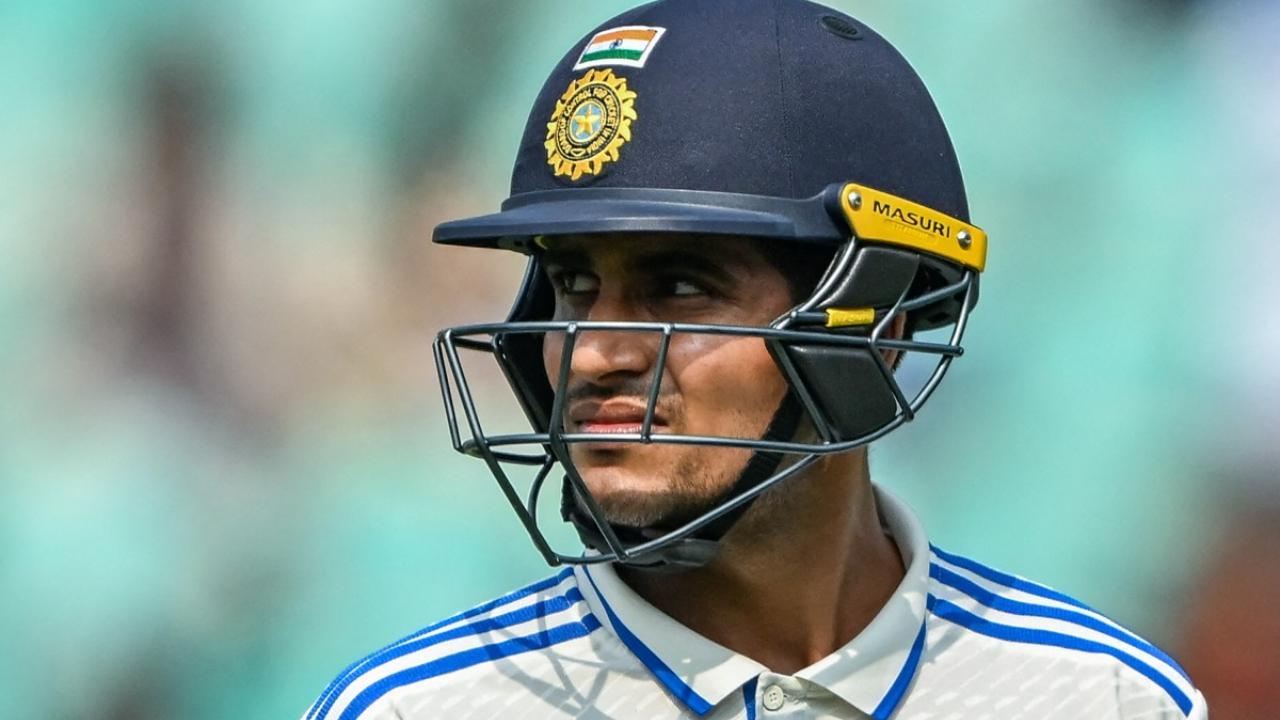The rut set in during India's tour to the West Indies mid-last year till he broke it against England at Visakhapatnam

Shubman Gill (Pic: AFP)
Shubman Gill had twin challenges to tame when he entered the Test series against England -- a barren run that gripped him for nine innings, which was made grimmer when he dropped down to bat at a rather new No. 3 slot at this level.
ADVERTISEMENT
Three Tests into the ongoing five-match rubber, Gill has managed to find some answers scoring 252 runs at 42 with a match-winning 104 at Visakhapatnam and a classy 91 in the IND vs ENG 3rd Test.
For Gill, it was all about coping with the expectations he had placed on himself, rather than making any sweeping technical changes to his batting.
"It is a bit tough (living up to his own expectations). When people from outside talk about all those things, it did not make much difference to me. But the expectations that I kept on myself made me a bit disappointed," Gill said in a press conference here on Wednesday.
However, Gill said he has still placed the same level of expectations on him but has learned to adjust to them.
"You will definitely have some expectations on you as to how you want to play for the team, the country. But I don't think that has changed my mindset. I still have the same set of expectations for myself.
"It is all about how you are able to forget them and move on quickly and be ready for the next challenge. That is the difference between a big player and an average player," he added.
Also Read: England back under-fire Root, Bairstow to keep India series alive
The 24-year-old could not score a fifty in 11 continuous innings, including the Hyderabad Test against England last month, once he started batting at No. 3, deviating from his preferred opening position.
The rut set in during India's tour to the West Indies mid-last year till he broke it against England at Visakhapatnam.
Gill said batting at No.3 presented him with a different task even though he had batted in that slot in domestic matches earlier.
"I have batted at No. 3 and No. 4 for India A and in some Ranji Trophy matches, and as such, it was not something that I have never done in my life. There are not many technical changes that I had to make to my game.
"But it is different when you open the innings because you don't get that much time to think as you are going right in after the toss. You are the one who is setting the tone."
Gill said playing in the middle-order made it mandatory for him to bat as per the situations.
"But when you bat at three or four, there is a certain situation that you have to bat at. If a couple of wickets have fallen early, then you are setting the stage. When you are opening then you are dictating the terms, but in the middle-order you will be playing according to the situations."
Gill offered the examples of Vizag and Rajkot Tests to underline his theory. He was joined by Shreyas Iyer when India were 30 for two, and he had to marshal the hosts' innings for their entire second dig while batting for almost 48 overs.
The right-hander said he had a slightly different role in supporting a marauding Yashasvi Jaiswal (214) in the second innings in the IND vs ENG 3rd Test.
"I would not have played any differently even if I was feeling any calm or composed (in Vizag). But definitely, what I was feeling at Vizag was a bit different from what I was feeling in the earlier matches for India (in terms of the match situation).
"But in Rajkot, the situation was different, we were in a very good position, leading by some 300 runs. So, keeping that in mind, it was a much calmer and composed innings."
Indian batters' failure to kick on after getting a start was a major reason behind their defeat in the first Test.
Gill said there was a talk in the dressing room about converting the starts into big knocks to pile pressure on the opposition.
"If you look at the first Test, a lot of players had got the starts. They played almost 50 balls and there were 80s and 90s. All the batsmen had the opportunity to make a big score but unfortunately, they did not get a big one.
"So, we had a chat and the point was if a batsmen get set and make a big score like 150 or 200, then it makes a big difference to us and the opposition. It will be good to score runs in the first innings because in India batting gets tough in fourth or fifth day," he explained.
(With agency inputs)
 Subscribe today by clicking the link and stay updated with the latest news!" Click here!
Subscribe today by clicking the link and stay updated with the latest news!" Click here!












